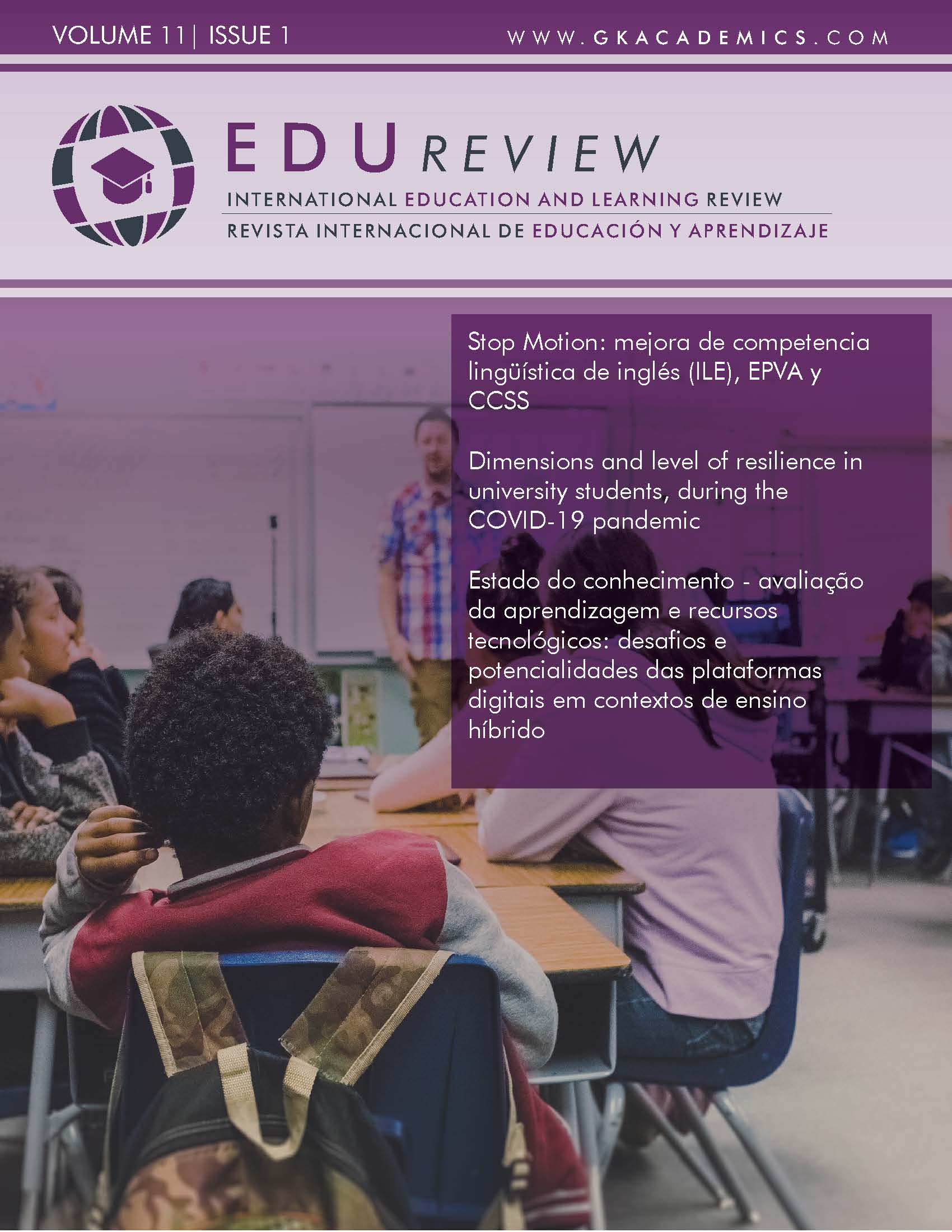Prototype of Expert System, Evaluation of Learning Activities with Written Natural Language
Experiences During the Design Phase in the Case of Health Administration
DOI:
https://doi.org/10.37467/revedu.v11.3958Keywords:
Expert system , Knowledge about information system, Writing natural language recognition, Knowledge management, Training skillsAbstract
The expert system of the prototype is an educational technology that contributes to the virtual instrumentation of reality in professional practice aimed at students and provides automated evaluation to teachers, especially in activities based on written natural language. During software engineering the system design involved a multidisciplinary framework and organizational transformation that include the standardization of instructional design and computer governance during the Knowledge Engineering process. In addition, this prototype contributes to the improvement of quality, knowledge management and intellectual capital of the institution.
Downloads
Global Statistics ℹ️
|
796
Views
|
205
Downloads
|
|
1001
Total
|
|
References
Abeliuk, A., & Gutiérrez, C. (2021). Historia y evoluación de la inteligencia artificial. Revista Bits de Ciencia, 21, 14-21. https://revistasdex.uchile.cl/index.php/bits/article/view/2767/2700
Bádaro, S.; Ibañez, L. & Agüero, M. (2013). Sistemas expertos: fundamentos, metodologías y aplicaciones. Ciencia y Tecnología, 13, 349-364. https://doi.org/10.18682/cyt.v1i13.122 DOI: https://doi.org/10.18682/cyt.v1i13.122
Carrillo, L. (2008). Sociedad del conocimiento. Academia, administración, complejidad y tecnología. Universidad Nacional Autónoma de México-SITESA.
Carrillo, L. (2022). Diseño instruccional y prototipo de un sistema experto para la evaluación de actividades formativas con lenguaje natural escrito en la dirección en salud. Proyecto PAPIME300423-DGAPA, Universidad Nacional Autónoma de México.
Conaway, C. (2021). Habilidades de colaboración: qué son y cómo manejarlas. Eebex Blog. Recuperado en abril de 2023 de: https://blog.webex.com/es/videoconferencias/habilidades-de-colaboracion-que-son-y-como-mejorarlas/
Echeverria, B. (Coord.)., Isus, S., Sarasola, L. & Blazquez, B. (1996). Orientación profesional. Universitat Oberta de Catalunya.
Espino, C., Cruz, A. & Zumba, J. (2021). Métodos de extracción de comentarios de la red social Twitter para uso en procesamiento de Lenguaje Natural. Polo de Conocimiento: revista científico-profesional 6(11), 104-123. https://dialnet.unirioja.es/servlet/articulo?codigo=8219332
García, R. (2000). El conocimiento en construcción. De las formulaciones de Jean Piaget a los sistemas complejos. Gedisa.
Oliva, C. (2016) Subjetividad y objetividad. A.M. Salmerón Castro, B. F. Trujillo Reyes, A. Del Huerto Rodríguez y M. De la Torre Gamboa (Coords). Diccionario Iberoamericano de Filosofía de la Educación. Facultad de Filosofía, Universidad Nacional Autónoma de México. Recuperado en marzo de 2023 de: https://www.fondodeculturaeconomica.com/dife/definicion.aspx?l=S&id=21
Piaget, J. & García, R.(1987). Hacia una lógica de significaciones. Gedisa.
Rufasto Godos, D. L. (2018). Prototipo de sistema experto para diagnosticar y proponer la solución de fallas de una red de área local del Centro de Informática y Telecomunicaciones en la UNP-año 2016 [Tesis para optar al título de Ingeniero Informático, Universidad Nacional de Piura]. http://repositorio.unp.edu.pe/handle/20.500.12676/2782
Tovar, F. (2017) Sistema de Salud. Diccionario enciclopédico de legislación en salud. Ministerio de Salud Argentina. https://salud.gob.ar/dels/entradas/sistema-de-salud
Universidad Veracruzana. (2010). Pasos para el diseño de tareas/proyectos de aprendizaje para el desarrollo de competencias y pensamiento complejo. Proyecto Aula, Universidad Veracruzana. https://www.uv.mx/personal/joacosta/files/2010/07/4-Pasos-D.I.1.pdf
Universidad Veracruzana. (s.f). Componentes del diseño instruccional. Proyecto Aula. Estrategia para la innovación de la práctica docente. http://www.acet-latinoamerica.net/aula_taller/index.htm
Valiente Barderas, A., Y Galdeano Bienzobas, C. (2009). La enseñanza por competencias. Educación química, 20(3), 369-372. https://doi.org/10.1016/S0187-893X(18)30038-7 DOI: https://doi.org/10.1016/S0187-893X(18)30038-7
Downloads
Published
How to Cite
Issue
Section
License
Those authors who publish in this journal accept the following terms:
-
Authors retain copyright.
-
Authors transfer to the journal the right of first publication. The journal also owns the publishing rights.
-
All published contents are governed by an Attribution-NoDerivatives 4.0 International License.
Access the informative version and legal text of the license. By virtue of this, third parties are allowed to use what is published as long as they mention the authorship of the work and the first publication in this journal. If you transform the material, you may not distribute the modified work. -
Authors may make other independent and additional contractual arrangements for non-exclusive distribution of the version of the article published in this journal (e.g., inclusion in an institutional repository or publication in a book) as long as they clearly indicate that the work was first published in this journal.
- Authors are allowed and recommended to publish their work on the Internet (for example on institutional and personal websites), following the publication of, and referencing the journal, as this could lead to constructive exchanges and a more extensive and quick circulation of published works (see The Effect of Open Access).













